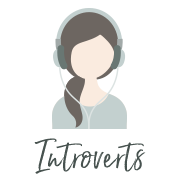Review of 10% Happier by Dan Harris
/I'm already telling everyone to read this book and thinking of people I can send it to because it's the perfect introduction to meditation. I was able to get my ebook copy from the library, so keep that in mind too.
I devoured this book in about 3 days. First, Dan Harris is hilarious. He's self-deprecating, honest and extremely curious, which makes for a great story. To get an idea of how he writes, here's an example of a chapter title: "Chapter 10: The Self-Interested Case for Not Being a Dick."
I've been getting more and more interested in meditation, mindfulness, and Buddhism over the past few years, but there's still a part of me that resists the stereotypical Buddhist, hippie type vision people have. Dan Harris summarized exactly how I felt about it when I couldn't put it into words. He explains that Buddhism started more as a philosophy than a religion, and although he has embraced parts of it, he approaches it all in a modern way. His whole experience really hit home with me and made a lot of sense.
The numerous scientific studies included in 10% Happier also add a level of evidence that I think will help more people get behind the benefits of mindfulness and meditation. He mentions MRI scans showing that meditators develop more gray matter in their brains.
I also liked that he researched and interviewed a variety of mindfulness "experts," including Ekhart Tolle and Deepak Chopra. It made me rethink my admiration for Chopra a little bit, but I guess I never really knew that much about him anyway.
Amazon description:
"Nightline anchor Dan Harris embarks on an unexpected, hilarious, and deeply skeptical odyssey through the strange worlds of spirituality and self-help, and discovers a way to get happier that is truly achievable.
After having a nationally televised panic attack on Good Morning America, Dan Harris knew he had to make some changes. A lifelong nonbeliever, he found himself on a bizarre adventure, involving a disgraced pastor, a mysterious self-help guru, and a gaggle of brain scientists. Eventually, Harris realized that the source of his problems was the very thing he always thought was his greatest asset: the incessant, insatiable voice in his head, which had both propelled him through the ranks of a hyper-competitive business and also led him to make the profoundly stupid decisions that provoked his on-air freak-out.
We all have a voice in our head. It’s what has us losing our temper unnecessarily, checking our email compulsively, eating when we’re not hungry, and fixating on the past and the future at the expense of the present. Most of us would assume we’re stuck with this voice – that there’s nothing we can do to rein it in – but Harris stumbled upon an effective way to do just that. It’s a far cry from the miracle cures peddled by the self-help swamis he met; instead, it’s something he always assumed to be either impossible or useless: meditation. After learning about research that suggests meditation can do everything from lower your blood pressure to essentially rewire your brain, Harris took a deep dive into the underreported world of CEOs, scientists, and even marines who are now using it for increased calm, focus, and happiness.
10% Happier takes readers on a ride from the outer reaches of neuroscience to the inner sanctum of network news to the bizarre fringes of America’s spiritual scene, and leaves them with a takeaway that could actually change their lives."
Good quotes from 10% happier book:
➡️ "The ego is constantly comparing itself to others. It has us measuring our self-worth against the looks, wealth, and social status of everyone else. ... The ego thrives on drama. It keeps our old resentments and grievances alive through compulsive thought. ... Perhaps the most powerful Tollean insight into the ego was that is it obsessed with the past and the future, at the expense of the present. We 'live almost exclusively through memory and anticipation.;"
➡️ "Buddhism's secret sauce went by a hopelessly anodyne name: 'mindfulness.' In a nutshell, mindfulness is the ability to recognize what is happening in your mind right now- anger, jealousy, sadness, the pain of a stubbed toe, whatever- without getting carried away by it."
➡️ "The final step- "non-identification"- meant seeing that just because I was feeling angry or jealous or fearful, that did not render me a permanently angry or jealous person. These were just passing states of mind."
➡️ "It's so obvious to me now: the slipping away is the whole point. Once you've achieved choiceless awareness, you see so clearly how fleeting everything is."
➡️"Even if we were handed everything we wanted, would it really make us sustainably happy? ... There's actually a term for this- "hedonic adaptation." When good things happen, we bake them very quickly into our baseline expectations, and yet the primordial void goes unfulfilled."
I highlighted a lot from the book, but I won't include them all. Read it for yourself!
You might also be interested in my review of Happy: A Documentary.
If you've read this book, I'd love to hear your thoughts! I'd also love to know what you're reading right now.









